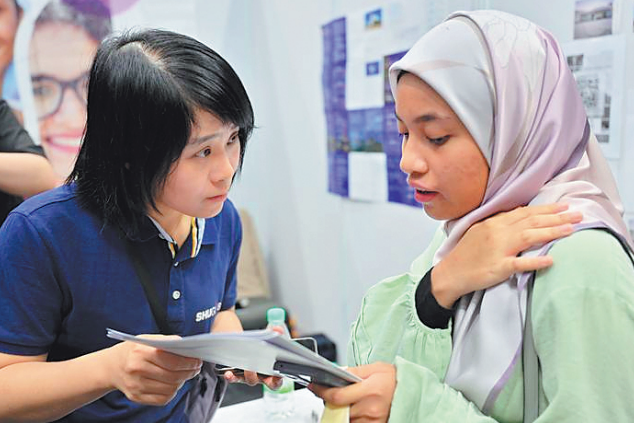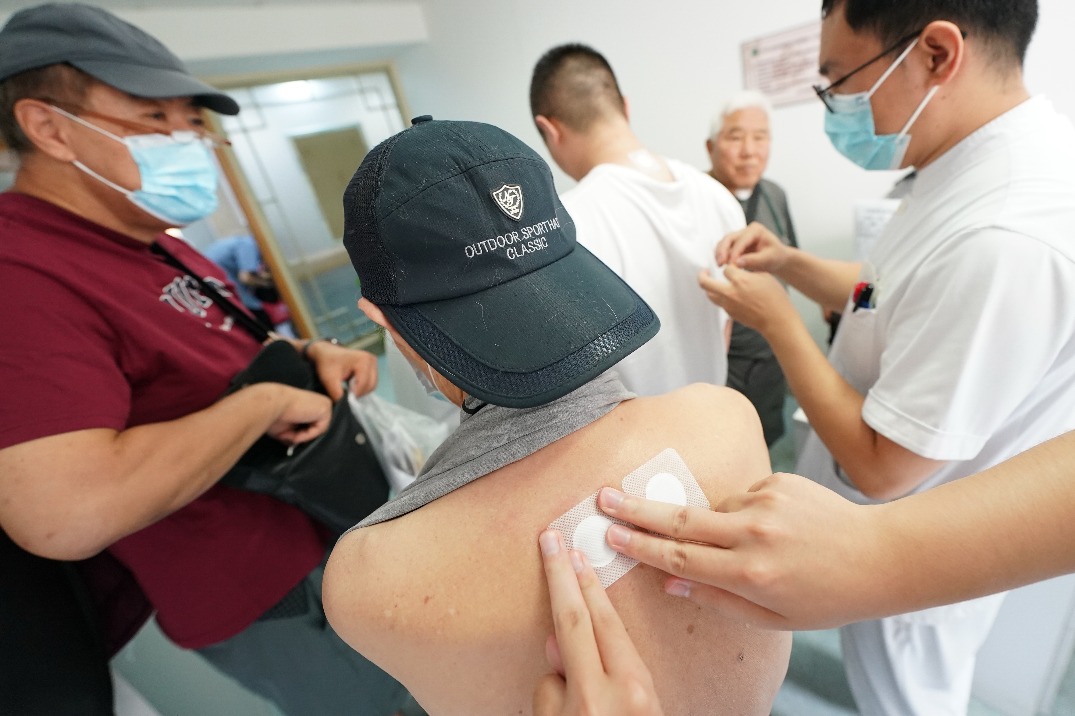Feature: Chinese journalists in India tormented by visa hassle
Xinhua | Updated: 2023-06-04 17:43
BEIJING -- Chinese journalists have been subjected to unfair and discriminatory treatment in India.
In 2016, three journalists from Xinhua News Agency were forced to return to China due to difficulties in renewing their visas. Recently, several other Chinese journalists in India were forced to leave the country after being denied visa renewals.
I am one of them.
In February 2017, I was dispatched to India as the chief of Xinhua News Agency New Delhi branch, and stayed there for six years since then.
As it is easily understood, a long stay in the host country is conducive to a correspondent's work, but it has become an excuse for the Indian side to turn him or her away.
On March 15, the Indian Foreign Ministry told me via email that I had to leave India before March 31 because I had stayed in the country for too long.
Actually, I submitted the application to the Indian Foreign Ministry in early February for renewing my visa, which was due to expire on March 7. As the deadline approached, I reached out to the Indian Foreign Ministry many times but received no reply except the final notice for me to leave.
My experience is not a rare occurrence. Over the years, Chinese journalists in India have had a difficult life due to persistent visa hassle.
DISCRIMINATORY VISA POLICY
Indian authorities typically grant one or two-year visas to journalists from other countries. However, in 2017, India shortened the visa validity period for Chinese journalists stationed in India to three months or even less than a month in some cases, subjecting Chinese journalists to repeated applications.
Since August 2019, my Xinhua colleague Jiang Lei had been granted visas for seven consecutive times with validity periods ranging from only 25 to 33 days. It was not until March 2020 that his visa validity was restored to three months.
India's visa policy has caused a lot of inconvenience for Chinese journalists in India.
According to Indian regulations, all necessary documents and services for Chinese journalists, including press cards, driver's licenses, bank accounts, and even mobile phone numbers, are linked to the visa. As the continuity of short-term visas is not guaranteed, Chinese journalists have encountered a series of problems as a result.
For example, it is difficult for Chinese journalists to open local bank accounts because their visas' validity is too short. Jiang got his first local bank card after four and a half years in India, but the card was frozen less than three months later as the Indian Foreign Ministry delayed the renewal of his visa.
According to the Indian Press Information Bureau, the press card of foreign journalists stationed in India is usually renewed annually, and its validity is synchronized with the journalists' visa. However, Chinese journalists often face the problem of short validity periods or non-renewal of press cards by the Press Information Bureau after they expire.
Jiang was stationed in India for five years and had never been able to obtain an Indian press card. Without a press card, it is difficult for Chinese journalists to carry out their work in the country.
BRUTAL TREATMENT
Family is a big concern for foreign correspondents. However, the Indian government's short-term visa policy has made it incredibly difficult for Chinese journalists in India to visit their families and relatives.
During the COVID-19 pandemic, Zhao Xu, another colleague of mine from Xinhua, had to rack his brain to plan a time to visit his family back in China.
His vacation plans had been revised and delayed many times due to uncertainties brought about by flight disruptions and health risks. More importantly, he had to get a full three-month visa before leaving to ensure a smooth return to India.
Many colleagues were unable to return home immediately even after family emergencies occurred.
In November 2020, Zhao's father suffered a cerebral infarction, but Zhao couldn't return home to pay a visit as his three-month visa was about to expire. When he finally returned to see his father, it was already January 2021.
As for Jiang, he had to wait until his wife was nearly five months pregnant to obtain a visa with an appropriate validity period to accompany her back to China. He then returned to India within the three-month visa validity period, but by the time he returned to China again, their child was already one and a half years old.
The Indian government's brutal treatment has put enormous psychological pressure on Chinese journalists in India.
Since 2020, the Indian side has refused to approve visa applications from Chinese journalists, which has hindered the journalists' rotation. Zhao was originally scheduled to work in India for four years. However, when his term ended in November 2021, he could not leave his post because India would not allow his successor to enter the country.
Due to India's visa policy, the New Delhi branch of Xinhua News Agency now has only one journalist working with a valid visa.
FORCED DEPARTURE
Before my hasty departure at the end of March, two journalists from other Chinese media organizations were also arbitrarily asked by the Indian side to leave the country within a time limit.
In November 2021, a Chinese journalist stationed in India returned home for vacation. In China, he was suddenly informed by the Indian Foreign Ministry that he did not need to return to India after the vacation and that if he returned, he had to be prepared to leave the country as soon as possible, even though his visa still had at least two months to expire.
He had to cut short his vacation and hurried back to India to hand over his work, terminate his housing rental and close his bank accounts. He soon received a notice asking him to leave the country within 10 days.
In October 2018, another Chinese journalist was refused by the Indian side when applying for visa renewal. The Indian side did not give a reason for the refusal and asked him to leave the country before the visa expired. He eventually was forced to leave and return to China two months later.
While lamenting all the difficulties my Chinese colleagues and I have encountered, I sincerely hope that these unfair and discriminatory treatments toward Chinese journalists can come to an end, so that they can rest assured and devote themselves to reporting on Indian news and cooperation between the two countries truthfully and objectively.
























